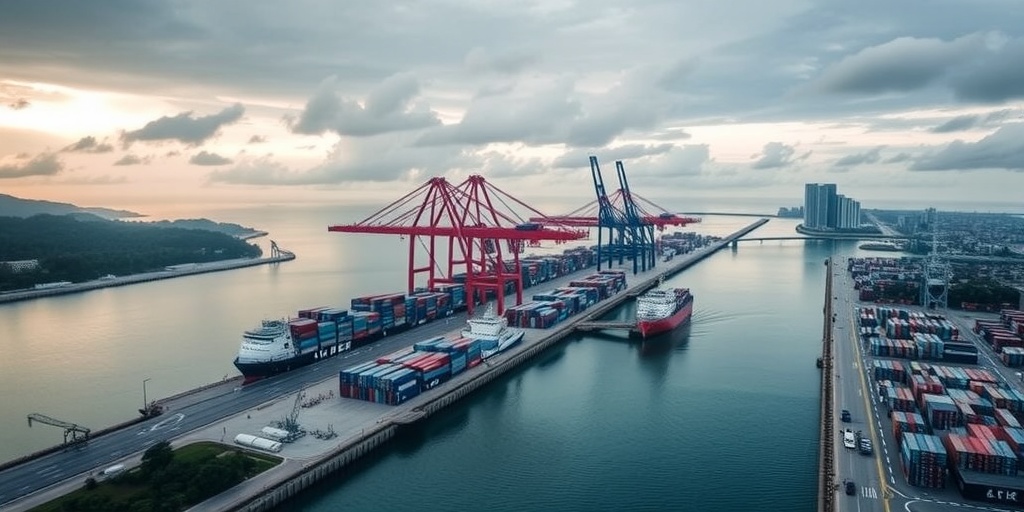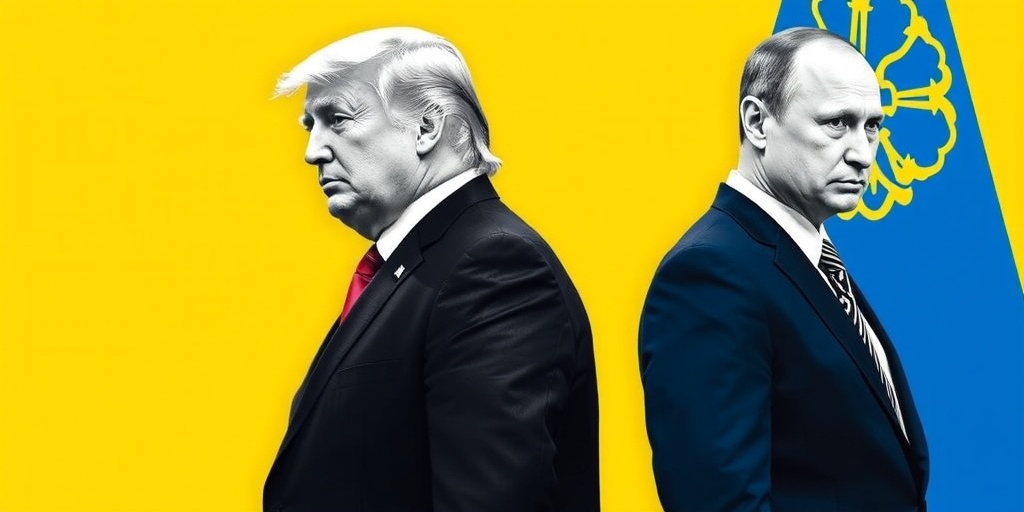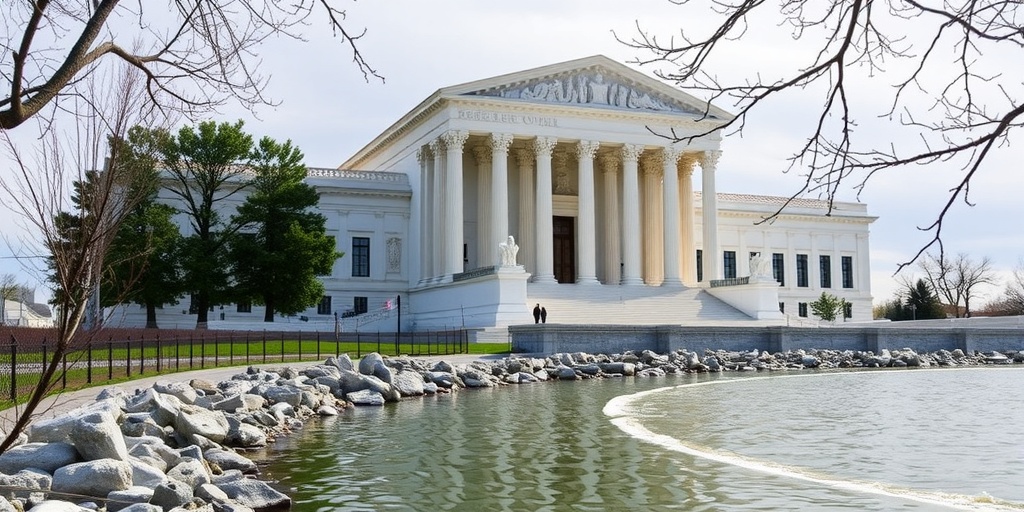Now Reading: BlackRock to Acquire Panama Canal Ports from CK Hutchison
-
01
BlackRock to Acquire Panama Canal Ports from CK Hutchison
BlackRock to Acquire Panama Canal Ports from CK Hutchison

BlackRock to Acquire Panama Ports in $19 Billion Deal Amid Geopolitical Tensions
In a significant development in global trade and investment, an investment group led by BlackRock, one of the world’s largest asset managers, has reached an agreement to purchase two strategic ports situated at either end of the Panama Canal. The ports are currently owned by CK Hutchison, a Hong Kong-based conglomerate that has found itself at the center of geopolitical tensions involving China and the United States. This monumental deal, valued at approximately $19 billion, highlights the growing interest in global infrastructure investments and the complexities of international relations.
The ports in question play a crucial role in the functioning of the Panama Canal, a vital artery for global maritime trade. Given their strategic locations, the acquisition is expected to bolster BlackRock’s portfolio in the logistics and transportation sector while also ensuring increased control over crucial supply chain routes. The move comes in the wake of heightened scrutiny regarding foreign ownership of critical infrastructure and concerns over potential Chinese influence in the region.
The backdrop to this acquisition involves rising apprehensions within U.S. political circles regarding the implications of Chinese control over key global assets. American lawmakers and policymakers have frequently expressed concerns about the potential for the Chinese government to exert influence through foreign companies like CK Hutchison, which is partly owned by Chinese interests. Notably, former President Donald Trump has voiced these sentiments on multiple occasions, alleging without substantiation that the Chinese government is effectively operating the Panama Canal and doing so with intentions that could undermine American interests.
Since the United States ceded control of the Panama Canal to Panama in the year 2000, discussions surrounding its management have often turned contentious. President Trump has often advocated for a reevaluation of the U.S.-Panama relationship, suggesting that American oversight of the canal would be beneficial for national interests. His administration’s stance underscored a broader narrative concerning competition with China and the need to protect U.S. assets globally.
The decision to proceed with the acquisition by BlackRock appears to be both a financial opportunity and a strategic play amid these volatile international discussions. Analysts suggest that the deal could be a stabilizing factor, placing control of the vital trade routes in the hands of a well-known American institution that is less likely to become embroiled in geopolitical conflicts compared to its Hong Kong-based predecessor.
The implications of this acquisition extend beyond the immediate financial transaction. It raises essential questions regarding the future of foreign investments in critical infrastructure, particularly concerning U.S. and Chinese relations. The purchase also reflects a growing trend of investment in global logistics and the significance of control over supply chains, especially in a post-pandemic world where trade routes and transportation networks have proven their vitality.
As BlackRock moves forward with finalizing the purchase, industry experts and policymakers alike will be monitoring the situation closely. The outcome of this deal will provide insight into how investment groups navigate the complex landscape of international relations and geopolitical risks. Furthermore, this situation illuminates the important role that major financial institutions play in shaping and responding to political climate changes.
Critics of foreign ownership and management of national assets will likely scrutinize the implications of this acquisition, while advocates may argue that American-led investment ensures a more stable and secure operating environment. Already, discussions are brewing among U.S. political leaders about enhancing regulatory oversight of foreign investments in crucial infrastructure sectors.
As this story continues to evolve, further updates will shed light on the reactions from both local and international stakeholders, along with implications for the future of the Panama Canal and U.S. foreign policy in the region.
In summary, BlackRock’s acquisition of the Panama ports represents a significant intersection of finance, international trade, and geopolitics. The potential benefits and risks of this transaction will undoubtedly be debated for years to come as the complexities of global commerce continue to unfold in an increasingly interconnected world.
Stay Informed With the Latest & Most Important News
Previous Post
Next Post
-
 01New technology breakthrough has everyone talking right now
01New technology breakthrough has everyone talking right now -
 02Unbelievable life hack everyone needs to try today
02Unbelievable life hack everyone needs to try today -
 03Fascinating discovery found buried deep beneath the ocean
03Fascinating discovery found buried deep beneath the ocean -
 04Man invents genius device that solves everyday problems
04Man invents genius device that solves everyday problems -
 05Shocking discovery that changes what we know forever
05Shocking discovery that changes what we know forever -
 06Internet goes wild over celebrity’s unexpected fashion choice
06Internet goes wild over celebrity’s unexpected fashion choice -
 07Rare animal sighting stuns scientists and wildlife lovers
07Rare animal sighting stuns scientists and wildlife lovers





















